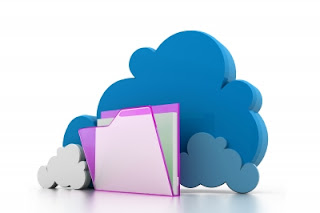4 Simple And Straight Methods To Back Up Your Data
The information on your computer is important for both your business life and your personal life. So understanding how to back up your data to prevent an overwhelming loss of information is very important.
 The loss of large amounts of data can be devastating to a company and extremely upsetting to an individual or family who stands to lose sentimental items such as photos or important documents.
The loss of large amounts of data can be devastating to a company and extremely upsetting to an individual or family who stands to lose sentimental items such as photos or important documents.
Learning how to back up your data is important and gives you peace of mind that the information stored on your computer is always accessible, because once you have lost it, there is no getting it back unless you have taken the appropriate precautions.
It is actually quite simple to implement a data back-up system and options abound. Each option has its strengths and weaknesses, but the most surefire way to keep your files safe is to rely on at least two simultaneous solutions.
Also read: Top 5 Data Backup Software
The sudden loss of a significant number of computer files can cause major distress and, in some cases, this loss means more than the loss of hours of effort put into work products. The worst cases of data loss result in unrecoverable data that prevents an individual or company from accessing vital information that may be required, for example, to devise business plans and strategies or to complete projects to the desired standards.
Data losses include images, statistics, reports, programs, and more, and personal data losses can be even more devastating than business losses.
Below are ways to back up your data. Consider each of these, or a combination of these, when determining the best way to prevent the loss of your data.
1. Storing data in the cloud

The advent of cloud computing has been particularly advantageous for the storage of data. For most businesses, using the cloud is the most secure solution.
Since data stored via the cloud can be accessed from anywhere using an Internet connection, data are safely stored as well as easily retrieved.
The only disadvantage to this option is that it generally requires a subscription to a service that offers cloud storage, and the safety of the data varies depending on the capabilities of the service provider. Properly researching cloud hosting service providers is important to find the safest option.
2. Local backup

Backing up data locally means saving it to an external drive, a flash drive, or a CD/DVD. Although repeatedly saving files to an external drive or CD/DVD is time-consuming, programs such as Windows Backup and SyncBack Freeware are available to automatically save your files to a local back-up source. Disadvantages of this option include the cost of equipment, which can be quite high, and the possibility of equipment malfunction.
3. Network Attached Storage (NAS)
NAS devices have been gaining popularity in the last few years, and they tend to offer faster data access than options such as home servers. NAS devices are often manufactured as separate computers designed entirely to store data, functioning via a stripped down operating system such as FreeNAS.
4. Home servers
Home servers, such as Windows Home Server or Mirra Personal Server, can also back up files and prevent data loss. Advantages include remote accessibility and an automatic back up setting. Disadvantages include vulnerability to home disasters such as fires and security of the home server.
Although using the cloud often means high security combined with reduced costs, at your company or in your home, you still need to thoroughly consider the various advantages and disadvantages of these different options to back up your data.
If possible, consider implementing two solutions for the utmost in security.
About The Geust Author: Timothy Wightman is CEO/President of Effective Data in Schaumburg, IL. Effective Data is a worldwide EDI provider and a leader in EDI consulting and data integration. Connect with Effective Data on Facebook and LinkedIn.













